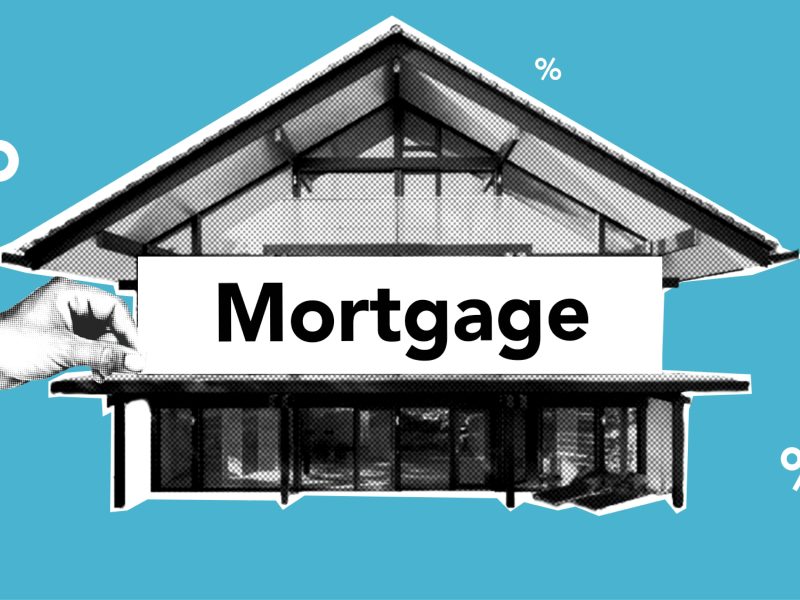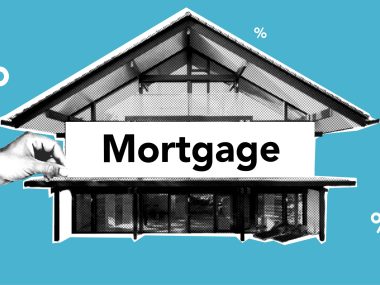When purchasing a home, securing a mortgage is a critical step for most would-be homeowners. But the process isn’t always straightforward. Understanding the requisites to get approved for a mortgage is essential to navigating the complexities of home financing smoothly.
To guide you through this process, this blog post outlines fundamental requirements, the role of your credit score, necessary documentation, down payment details, and possibilities for those with lower incomes or debt.
What Are the Basic Requirements To Qualify For A Mortgage Loan?
Before diving into the world of house-hunting and envisioning your perfect home, it’s important to familiarize yourself with the five pillars of qualifying for a mortgage:
Stable Income:
Essential to approval, lenders require evidence of stable income, usually spanning two years. This assures them of your ability to keep up with mortgage payments.
Good Credit Score:
Your credit score is your financial report card. A higher score signals to lenders that you’re a responsible borrower.
Down Payment:
The down payment is your upfront investment in the property. This can vary, but having a sizeable amount strengthens your loan application.
Debt-to-Income Ratio (DTI):
Your DTI is a percentage that tells lenders how much of your income goes towards paying existing debt. A lower ratio is more favorable.
Financial Documentation:
Lenders need a clear view of your finances. This is where tax returns, bank statements, W-2s, and pay stubs come into play.
Understanding the Pillars in Depth
– Stable Income:
Demonstrating financial stability through your job history and regular income is non-negotiable. Lenders typically ask for documentation like pay stubs or employment letters that show you have a reliable source of money coming in, ensuring that you’re well-equipped to manage a monthly mortgage payment.
– Good Credit Score:
A favorable credit score, often around 620 or higher for conventional loans, is a testament to your financial responsibility. Based on your credit history, this score directly impacts your mortgage’s terms and interest rates.
– Down Payment:
The amount you’re able to put down varies, but it usually starts at 3.5% for FHA loans and can go up to 20% or more. The more you can front, the better the terms you might receive, including lower interest rates.
– Debt-to-Income Ratio (DTI):
Lenders prefer a DTI below 43%. This shows that you have enough income to handle your debts, plus a new mortgage payment. High DTI signals financial strain and may hinder approval.
– Financial Documentation:
This paperwork is critical in painting a detailed picture of your financial health. By thoroughly examining your documents, lenders assess your ability to pay back the loan.
To consolidate the basics:
- Prove steady employment with a consistent income to show repayment capacity.
- Maintain a strong credit score, which sets the stage for better loan terms.
- Prepare to offer a solid down payment that aligns with the requirements of your chosen loan program.
- Keep your DTI low by managing debts to present a balanced financial state.
- Organize your financial documents to expedite the verification process and establish credibility.
With these pillars firmly in place, let’s explore how specific factors like your credit score can influence your mortgage application.
How Does My Credit Score Affect My Mortgage Application?
Your credit score, essentially a numerical summary of your credit history, is a major determinant of the outcome of your mortgage application. Its impact is far-reaching, influencing not only your ability to obtain a mortgage but also the conditions of the mortgage itself:
Interest Rates:
Sporting a high credit score makes you eligible for lower interest rates, which means less money paid over the lifespan of your mortgage.
Loan Eligibility:
Lenders use this score to gauge the risk they incur by loaning you money. A low score could narrow your loan options or lead to outright denial.
Down Payment:
A commendable score may qualify you for loans requiring smaller down payments.
Loan Terms:
Those with better credit often enjoy more favourable terms that may include options such as reduced fees and flexible repayment schedules.
Insurance Premiums:
Even private mortgage insurance (PMI) premiums are affected, as a strong score could equate to lower insurance costs.
Elaborating on Credit Score Consequences
A mortgage loan is a substantial commitment, and lenders do not take their decision-making lightly. They scrutinize credit scores because these reflect an individual’s financial history, including how they manage debt and make payments.
A higher credit score, typically north of 700, often results in more attractive interest rates, saving you significant money throughout the loan.
The eligibility for certain loan programs or better terms generally aligns with higher credit scores; less-than-stellar scores may mean higher interest rates or additional scrutiny during application.
Down payments and credit scores have a symbiotic relationship. The stronger your score, the less you might need to put down to secure a mortgage.
Comprehensive loan terms, including duration, interest type (fixed or variable), and fees, can also be contingent on your creditworthiness.
Insurance companies regard your credit score when determining PMI premiums, so maintaining a solid score can decrease your monthly costs.
Your credit score is the financial compass that lenders use to navigate your loan application:
- Aim for high credit scores to enhance interest rates and wider loan options.
- Address any credit issues before applying for a mortgage to present the best financial profile.
- Consider how your credit may affect your down payment requirements.
- Look into how your credit score might influence loan terms and insurance premiums, adjusting your mortgage strategy accordingly.
Understanding the pivotal role of your credit score will help you better prepare for your mortgage application and avoid surprises.
What Documents Do I Need To Provide When Applying For A Mortgage?
The paper trail you produce when applying for a mortgage is critical. Here’s a breakdown of the documentation you’ll typically need to supply:
Proof of income: Expect to present recent pay stubs, W-2s, and, for the self-employed, comprehensive tax returns.
Credit history: Lenders will check your credit, but supplying your credit reports may expedite the process.
Proof of assets: Demonstrate your financial stability with bank statements and other investment documents.
Employment verification: Be ready to show you have a stable job through direct contact information or formal documentation.
Personal identification and residency: A valid government-issued ID and proof of legal residency are standard requirements.
Further into Documentation
Compiling the necessary paperwork is an unavoidable but vital step in mortgage approval. It serves the purpose of validating your financial capacity and history.
Proof of income is paramount and is verified through recent pay stubs, W-2 forms, and for self-employed individuals, the last two years of tax returns to illustrate stability and continuity of earnings.
Your credit history will be thoroughly assessed, so having credit reports on hand can streamline the verification process.
Evidence of assets, like bank and investment account statements, support your application by showing your ability to save and manage money responsibly.
Employment verification assures the lender of your job security, which is fundamental when considering a long-term loan commitment.
Proper identification such as a driver’s license or passport helps verify your identity and residency, ensuring the lender they are dealing with a legitimate borrower.
Here’s a checklist to help you gather what you’ll need:
- Collect recent pay stubs, W-2s, and tax returns to confirm your income.
- Obtain a copy of your credit report in advance to address any discrepancies.
- Prepare statements from bank accounts, retirement savings, and other assets.
- Have employment proof, such as contact details or an employment verification letter, ready to go.
- Ensure you have current, valid government-issued identification and legal residency documents.
Equipped with the right documents, you’re set to make a strong case for mortgage approval.
How Much Down Payment Do I Need To Make To Get Approved For A Mortgage?
The down payment on a mortgage is, for many, the most daunting aspect of the home-buying process. The specifics:
The conventional range for down payments is between 3% and 20%, influenced by loan types and lender requirements.
Special programs, like FHA loans, cater to first-time buyers, permitting down payments as low as 3.5%.
A richer down payment often translates to more favorable mortgage conditions, like reduced interest rates and the circumvention of PMI.
PMI kicks in when your down payment is under 20%, an added expense to your monthly bills.
Committing a larger sum upfront can lead to substantial savings over the loan’s lifespan by shrinking the principal and the interest due.
Further Insights on Down Payments
The size of your down payment is a significant factor in the home buying process and can influence the overall financial dynamics of your mortgage.
Traditional loans typically expect a down payment that can vary from 3% for certain loan programs up to 20% or more. A standard starting point for many programs is around 20% to avoid additional insurance costs.
Lower down payment options are available, especially for first-time buyers, through the likes of FHA loans. These programs are tailored to make homeownership more accessible.
Though a higher down payment is a larger initial outlay, it can improve the terms of your mortgage, potentially securing a lower interest rate, which will save money in the long run.
PMI is required on conventional loans with down payments of less than 20%. This insurance protects the lender but adds to your monthly expenses.
The benefits of a larger down payment are twofold: a lower interest rate due to decreased risk for the lender and less interest paid over the life of the loan due to a smaller principal.
To navigate down payment decisions successfully:
- Consider your budget and the various loan options to determine a down payment that’s both manageable and beneficial for you.
- Seek out special programs that might offer reduced down payment requirements.
- Weigh the advantages of a larger down payment against the need to maintain liquidity.
- Remember the impact on PMI and the cumulative interest when deciding on your down payment size.
Can I Still Get Approved For A Mortgage If I Have A Low Income Or Debt?
Obtaining a mortgage isn’t necessarily out of reach if you’re dealing with low income or debt. Lenders examine more than just these factors when considering approval:
Economic circumstances alone aren’t automatic barriers; credit history, current employment, and your assets play significant roles in a lender’s decision.
A robust credit score can be your best ally, even if your income is lackluster or you’re saddled with debt.
Lowering your debt-to-income ratio is key. Focus on debt reduction and avoiding new fiscal burdens.
A substantial down payment offsets low income, sending positive signals about your financial responsibility and reducing the needed loan amount.
Exploring loans with more flexible qualifications, like those backed by the government, can offer alternative paths to home ownership.
Strategies for Overcoming Financial Hurdles
Challenges such as lower income or existing debt don’t automatically exclude you from mortgage approval but require strategic planning.
Displaying the ability to manage credit through a strong credit score could compensate for lower earnings or elevate your borrower profile despite existing debts.
Diligently working to decrease your debt-to-income ratio signals to lenders that you’re actively managing your financial obligations and may enhance your attractiveness as a borrower.
Offering more money as a down payment could make a compelling argument in your favor, suggesting that despite a lower income, you can save and invest in your future.
Government-backed loan programs often have more relaxed requirements, which might be especially beneficial for those with financial constraints.
When faced with financial odds:
- Focus on building or maintaining a high credit score.
- Work towards reducing debts to improve your DTI ratio.
- Save for a larger down payment, if possible, to strengthen your mortgage application.
- Investigate federal loan options with potentially lowered requirements.
Your Roadmap to Mortgage Approval Success
Securing a mortgage is a milestone journey paved with financial scrutiny and known for its considerable documentation.
Armed with the knowledge of the basic requirements, the significance of a good credit score, the necessary documentation, down payment expectations, and strategies for those with lower incomes or debts, you’re now better equipped for the road ahead.
Embarking on this financial voyage calls for preparation and understanding. Each step outlined in this guide is designed to demystify the process and ensure your pathway to becoming a homeowner is as smooth as possible.
Remember, a trustworthy financial advisor or mortgage broker can be an invaluable resource, providing personal advice tailored to your unique circumstances.
So set forth confidently, with the assurance that the keys to your dream home are within reach, and a clear, fully-illuminated path to mortgage approval awaits you.
Please Help Share This Post






